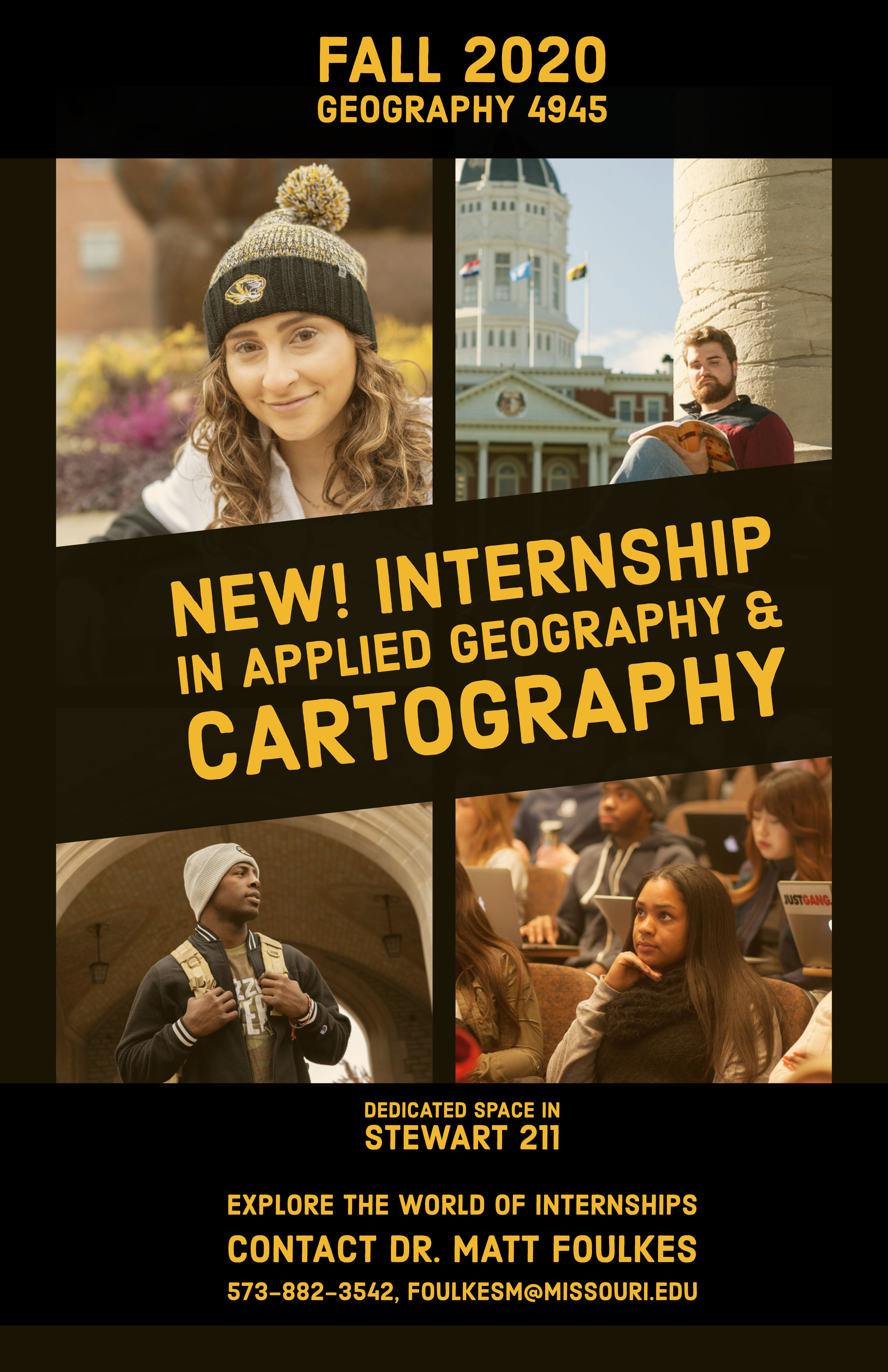Fall course is new, but internships available immediately
This fall, the Department of Geography is offering a new course titled “Internship in Applied Geography & Cartography” — GEOG 4945 — for undergraduate students interesting in educational training that extends beyond the classroom. Matt Foulkes, associate professor and director of grad studies, is in charge of the class/program that will provide paid and unpaid internship opportunities to geography majors.
“Our goal is to basically increase the number of students involved in internship experiences,” Foulkes says. “In addition to growing and diversifying our internship experiences in the fields of GIS, we would also like to grow the opportunities for students who are specializing in areas of physical or cultural geography.”
Students who participate will have regularized, individual work experience with local, regional, state or national agencies, with guidance and readings supplied by Foulkes, says Soren Larsen, department chair. “They may repeat up to a maximum of six hours,” he adds. Class hours per semester vary between one and three hours, depending on the amount of time the students spend working with the partner organizations. The course can last the length of the semester, be completed in the summer, or be a shorter time commitment, as needed.
Foulkes said the goal is to develop a wide variety of internship possibilities for students, creating a portfolio of partners that are willing to regularly work with the geography department. “Students will grow career-readiness skills that include a variety of geographic activities,” Foulkes adds. “But the students will also learn to work on larger projects, potentially in teams and with mentors outside the university.”
This class/program hopefully will result in the numbers of interns tripling next year, said Foulkes. “My job is to facilitate the relationship between the intern and the mentor and encourage reflection on the internship experience,” he adds. “Reflection is a critical part of it because it encourages people to think critically about what they have learned. It helps them recognize and translate those skills into future jobs and job interviews — what skills sell to future employers.”
Foulkes said students have already approached him interested in the program. “There definitely is interest there,” he adds. “The main thing is people don’t know how to go about it, and, as a department, we are trying to help make those steps easier. The College of Arts and Science also provides support and will help us, in some cases, find internship experiences for our students.”
Some internships will be in the books this spring, but most will occur in summer, fall and concurring semesters.
“Internships are increasingly seen as an important and critical part of our Mizzou education,” Foulkes says. “It’s a point of emphasis for the College of Arts & Science and geography to try to make strong connections between the discipline of geography and the employability of our majors, demonstrating how the skills our majors learn translate to the world of work.”
